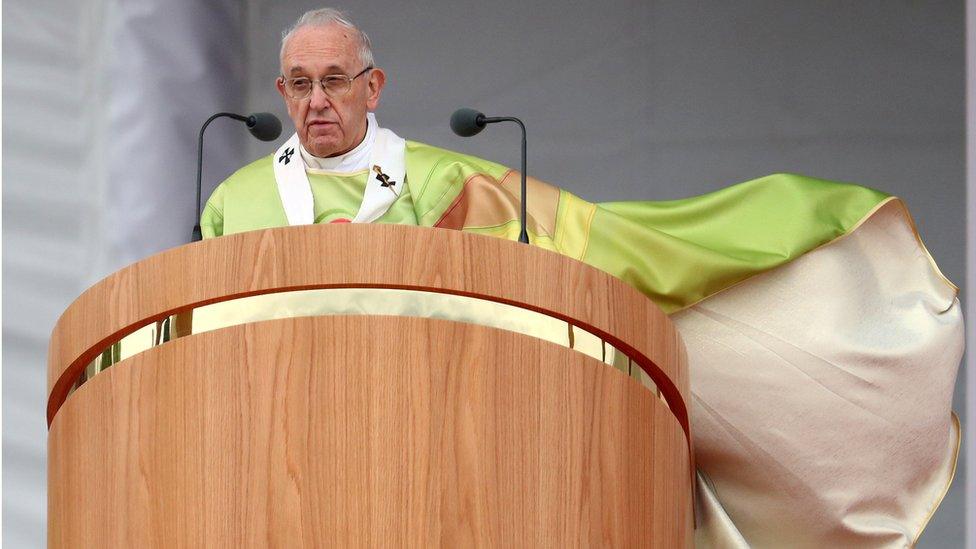Pope Francis faces twin battle in Church split over sexual abuse
- Published
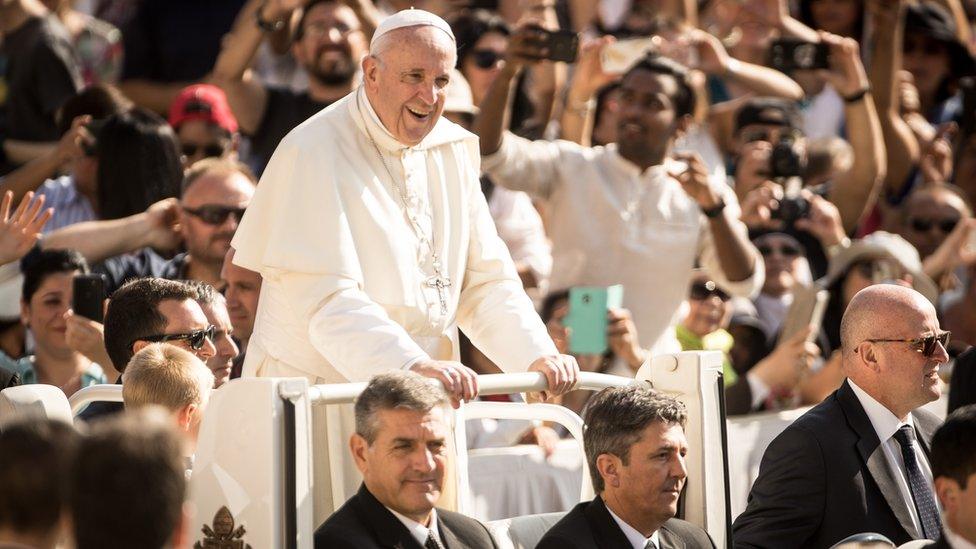
The crowds are quieter than they used to be.
At the Pope's weekly audience in St Peter's Square, tourists and pilgrims barely filled half the piazza. It was easy to get to the front of the crowd to watch Francis go by in his Popemobile.
In his address, he reflected on his recent trip to Ireland. "The meeting with eight survivors [of abuse by priests] left a deep impact," he said.
The audience was a sombre reminder that the novelty of this papacy has given way to two main battles, which are now tangled into one.
Who is challenging the Pope?
The first of these battles puts the Pope up against those who accuse him of not doing enough to tackle child abuse in the Church.
Francis's opponents are an ad hoc coalition of abuse survivors, angry Catholics, and secular leaders who believe that the Church has too much unchecked power.
The second battle sees the Pope fighting conservative Catholic critics who accuse him of diluting their faith.
These critics began their fight shortly after Francis was elected in 2013.
In particular, they object to his moves to allow divorced and remarried Catholics to take Communion. They are now adopting the subject of the first battle - child abuse - as a new front in their own long offensive.
Pope Francis spoke out on abuse on a visit to Ireland
The two battles come together in the 11-page statement released by Archbishop Carlo Maria Vigano on 26 August.
In the statement, the archbishop accused the Pope of failing to act in 2013 on allegations that Cardinal Theodore McCarrick had abused minors. The Pope's supporters vehemently question the credibility of this accusation.
The archbishop's letter also made broader, conservative attacks on the way the Church is run.
"The homosexual networks present in the Church must be eradicated," Archbishop Vigano wrote. "These homosexual networks… act under the concealment of secrecy and lie with the power of octopus tentacles, and strangle innocent victims and priestly vocations, and are strangling the entire Church."
'A trap to catch Pope'
To some Vatican-watchers, these accusations sound familiar.
"At the heart of it all is this animus against the Pope," says Robert Mickens, English-language editor of La Croix International.
"Vigano is kind of a strange character in this case because it's really a whole group of people. What is the motive behind this? To bring down Pope Francis in any way possible. They're trying to catch him in a trap. And Francis is not falling for it."
But another group of conservative journalists in Rome gives voice to much of the dissatisfaction with Pope Francis.
Edward Pentin, from the National Catholic Register, published the Vigano statement. He denies being part of an orchestrated campaign to bring down the Pope.
"I don't think there's any such organised campaign, but there has long been a growing and deep sense of concern and even anger about this pontificate among many practising Catholics," he says.
"They are particularly frustrated because they are trying to uphold the Church's teaching and morals but are not feeling well served by the Pope and much of the hierarchy.
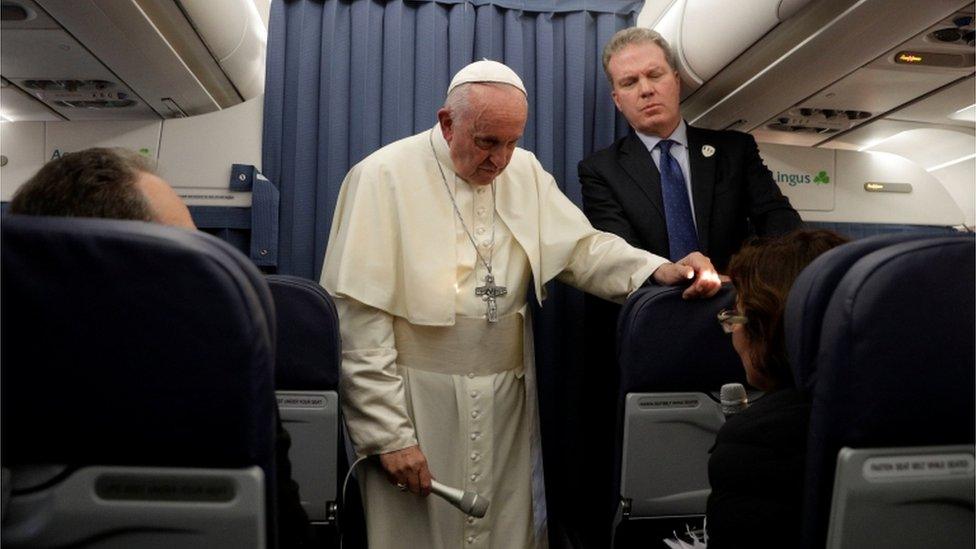
Pope Francis refused to respond to Archbishop Vigano's 11-page letter as he returned from Ireland
"They sense this especially now, with questionable innovative teachings coming from the Vatican and reports of abuse cover up at the highest levels. I believe these Catholics' voices should be heard, and, as a Catholic journalist, I see it as my job to try to make sure they are."
Those voices include a number of cardinals.
In 2016, four of them wrote to Francis calling on him to clarify his teaching. It was seen as a highly unusual act of protest or even disobedience. Their letter, openly questioning the Pope's judgement, foreshadowed the statement released by Archbishop Vigano.
Will Pope succeed?
Francis did not reply to the cardinals' letter. Nor has he replied to Carlo Maria Vigano's accusations.
The Pope has clearly decided that there is nothing to be gained by engaging in open battle with conservative critics.
"He is no pushover," says Robert Mickens. "He is standing his ground."
Popes can expect to find themselves taking on dissident factions within the Church.
In 1988, Pope John Paul II took the dramatic step of excommunicating some members of a renegade religious society led by the French Archbishop Marcel Lefebvre which had rejected Vatican reforms.
Benedict XVI took a strict line against priests who strayed from official teaching.
The fight against doctrinal opponents may be the easier of Francis's two battles.
The Pope's wider public fight to convince the other critics inside and outside the Church that he is capable of confronting the institution's legacy of clerical sexual abuse may be much more difficult.
- Published27 August 2018
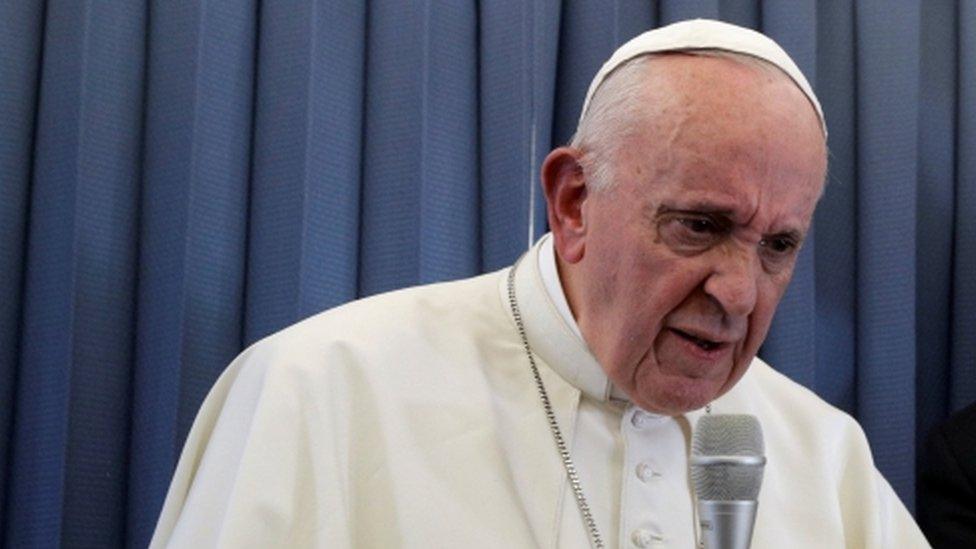
- Published27 August 2018
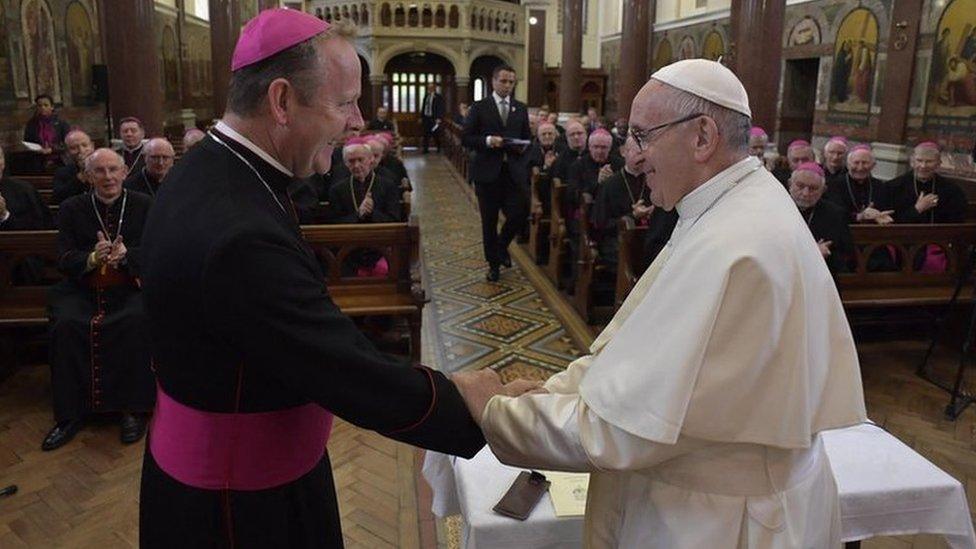
- Published26 August 2018
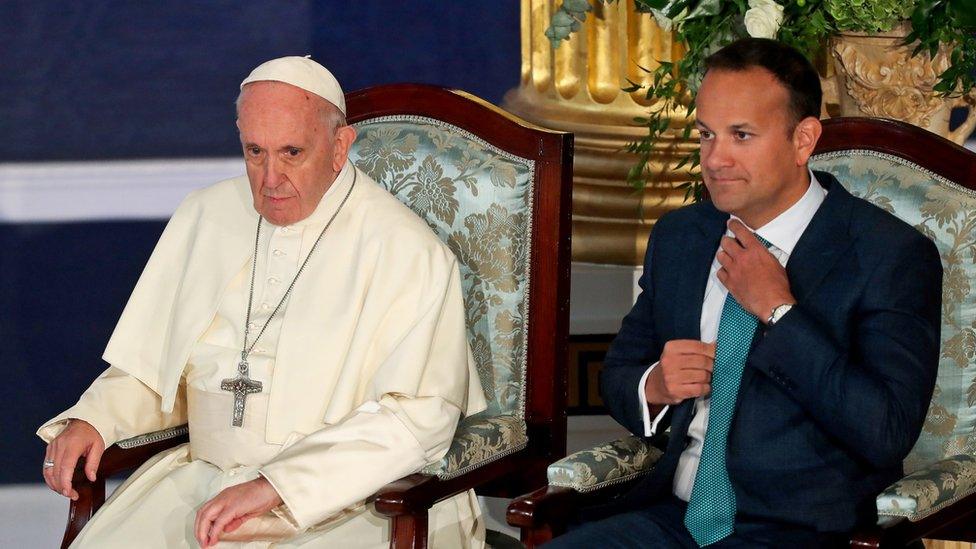
- Published26 August 2018
